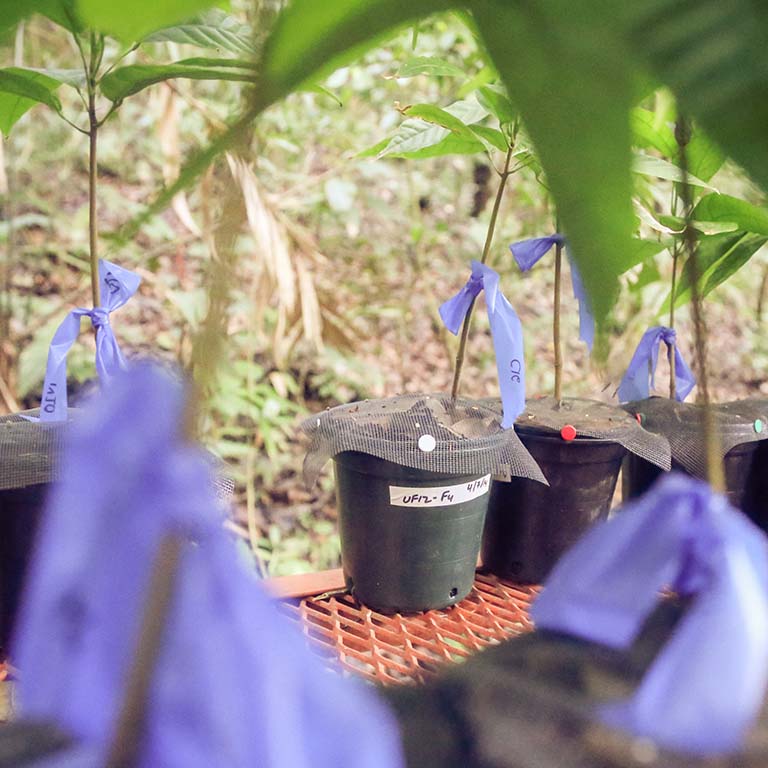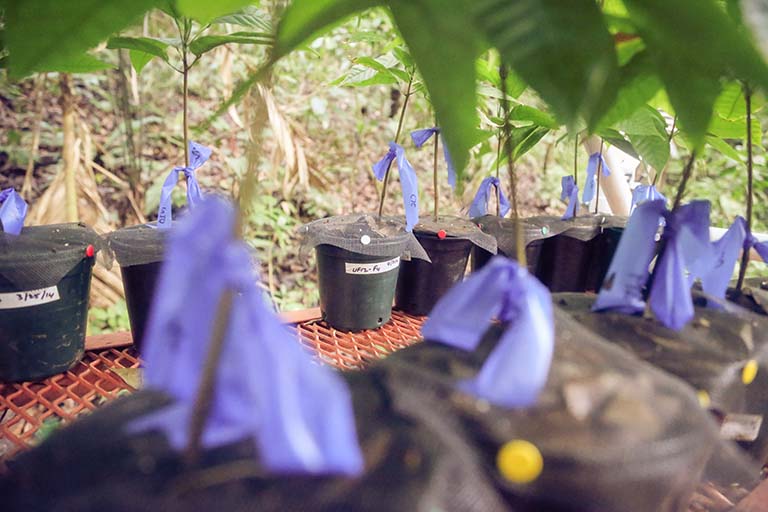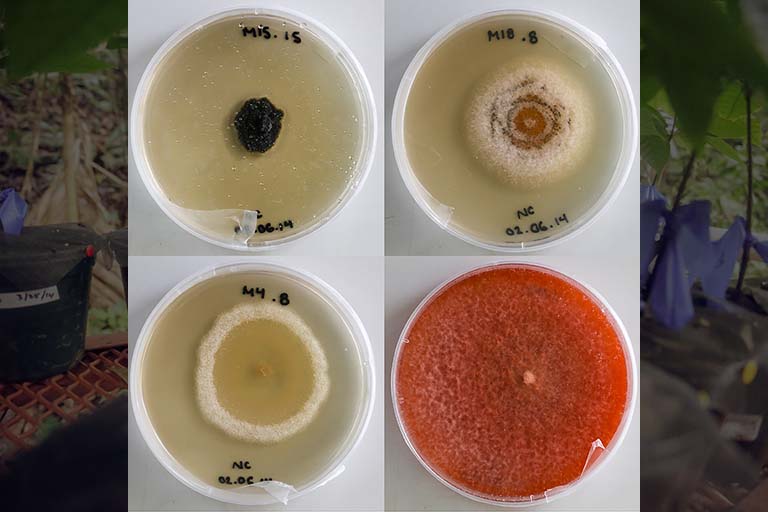Every species of plant sampled to date hosts a fungal microbiota in its leaves. These fungi, known as endophytes, can play many roles for plants—influencing functions such as pathogen and herbivore resistance, drought tolerance, and competitive ability. Despite their importance for plant physiology and fitness, it is unclear how endophyte communities are transmitted and assemble in nature to interact within their hosts and affect plant health.
Natalie Christian and colleagues manipulated local environmental factors and showed that leaf litter exposure and vertical stratification have dramatic effects on the microbiome of cacao trees, the source of chocolate. Furthermore, the resulting microbial communities had large effects on plant health. Christian infected the experimental plants with Phytophthora palmivora, a common cacao pathogen, and found that seedlings previously exposed to litter from cacao adults experienced reduced pathogen damage— an effect attributable to microbiota transferred from litter that enriched the seedling microbiome with fungal species that in turn enhanced pathogen resistance. Analogous ideas of "seeding" a healthy microbiome into hosts have been documented in human microbiome studies, including fecal transplants and maternal transmission of a healthy microbiome to infants.




 The College of Arts
The College of Arts